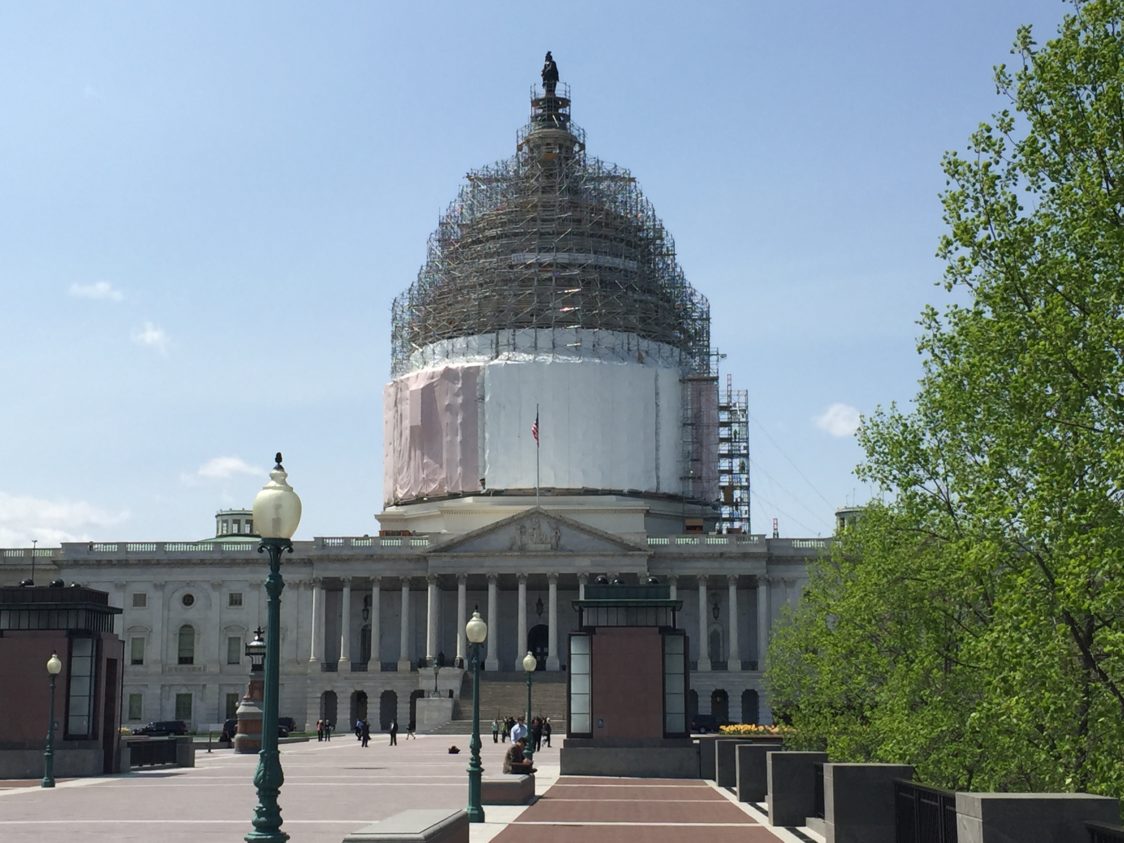By Michael Golden and Lawrence Lessig
Over the last year, presidential candidates from both parties have ridden to great success the populist cry of a “rigged system” – in which billions of dollars in campaign cash have destroyed the very idea of a representative democracy. The American electorate has embraced this message.
Donald Trump distilled the charge to a dozen words: “When you give, they do whatever the hell you want them to.” And in differing degrees and with different styles, Bernie Sanders and Hillary Clinton have both attacked the tight grip of campaign cash on the politics of our nation.
But with three months to go before ballots get cast, only one of the two frontrunners – and her party – has unequivocally supported specific plans to solve these problems. And though the presidential race now dominates the media conversation, it is in Congress, which currently carries a 14 percent approval rating, where these solutions will matter the most. The polarization and paralysis on Capitol Hill, stemming from our rigged election system, prevents legislators from negotiating and compromising to make meaningful progress on the issues that Americans consistently prioritize.
Fortunately, some in Congress are working toward a solution. Just before the national conventions, the House Democratic leadership announced its “By The People” (BTP) legislative package. These reforms, backed by 187 members of the rank-and-file, are designed to “revitalize our nation’s voting laws, restore sanity to the electoral process, and empower everyday Americans to reclaim their voice in the political process.”
First, BTP would take a big step toward reforming the practice of gerrymandering by mandating independent state commissions that would more fairly draw America’s lopsided congressional districts. When over 84 percent of U.S. House races are foregone conclusions before voting even begins, and 95 percent of incumbents are reelected, largely due to rigged districts, it is time to take action. Clinton supports such action. Not a word from her opponent.
Second, BTP would restore essential provisions of the Voting Rights Act, which was eviscerated by the Supreme Court 2013 Shelby v. Holder ruling; promote automatic voter registration for all Americans when they turn 18; and expand early, in-person voting in every state. Clinton supports these actions. Not a word from her opponent.
Third, and perhaps most importantly, BTP would change the way congressional elections are funded, by leveraging small donations up to $150 with public matching funds at a ratio of 6 to 1— and 9 to 1 for candidates who choose not to accept contributions over $150. The law would force disclosure of the millions of dollars in dark money contributions that currently remain hidden within our system, and replace the gridlocked FEC with a five-member agency possessing increased investigative and enforcement powers. Clinton supports these changes. Silence from her opponent.
Trump’s silence is Clinton’s opportunity. If she promised a frustrated America “if you give me a Democratic Congress, I promise to pass these reforms in the first 100 days,” then the anger that has boiled over in this election could have target and focus. Electing a Congress committed to reform is the first and essential step to restoring a representative democracy.
Clinton could make this election a referendum on that reform, and get a Congress that is finally equipped to represent America.
Trump recently declared: “If I am elected president, I will end the special interest monopoly in Washington, D.C.” That is bold rhetoric, reflecting a cross-partisan political reality. But Trump and Republicans in Congress have done nothing to show that they would fix this democracy. To the contrary, the GOP Party Platform actually favors raising contribution limits. Clinton and the Democrats are committed to reform. And Americans could be rallied to a party that supports reform with a real plan to achieve it.
This is democracy’s chance. Like Johnson with civil rights, or Nixon with China, we need leaders bold enough to seize it.
Michael Golden is the author of Unlock Congress and cofounder of One Million Degrees. Lawrence Lessig is a Harvard Law Professor and author of Republic Lost.


